After a two-year hiatus, and now focusing exclusively on the African continent, 16 undergraduate students traveled to Kenya and Rwanda (our 14th country to work in) to learn and work with five dynamic social enterprises in both urban and rural settings which include Kigali, Rubengera. Karongi (Kibiza Refugee Camp) and northern Kenya districts.
One Acre Fund – Rubengera, Rwanda
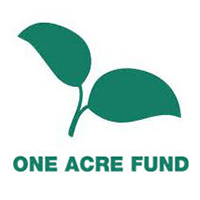 More than 50 million smallholder farmers in Sub-Saharan Africa are locked in annual cycles of hunger because they’re unable to grow enough food to feed their families. Malnutrition can have serious, lifelong effects, especially for children, robbing them of their full potential as they grow up. The challenges presented by hunger are huge, but not
More than 50 million smallholder farmers in Sub-Saharan Africa are locked in annual cycles of hunger because they’re unable to grow enough food to feed their families. Malnutrition can have serious, lifelong effects, especially for children, robbing them of their full potential as they grow up. The challenges presented by hunger are huge, but not 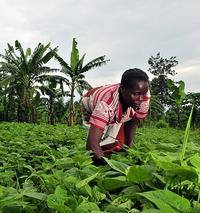 insurmountable. Modern techniques have allowed farmers around the world to unlock giant gains in crop yields. One Acre Fund is delivering proven tools to smallholders in remote areas of Sub-Saharan Africa where yields and access to financing have lagged behind. One Acre Fund provides a spectrum of tools including seeds, loans, training and market facilitation to over 600,000 farm families across 6 African countries. The Yale concentrated on research and interviews for new potential partners to work with OAF at the back end (off-take) of the value chain – improving farmer access to markets.
insurmountable. Modern techniques have allowed farmers around the world to unlock giant gains in crop yields. One Acre Fund is delivering proven tools to smallholders in remote areas of Sub-Saharan Africa where yields and access to financing have lagged behind. One Acre Fund provides a spectrum of tools including seeds, loans, training and market facilitation to over 600,000 farm families across 6 African countries. The Yale concentrated on research and interviews for new potential partners to work with OAF at the back end (off-take) of the value chain – improving farmer access to markets.
Student participants: Seth Bartlett, Izak Epstein, Alexander Gerszten, Olivia Loucks
Kepler – Kibiza refugee Camp, Rwanda
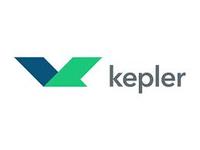 Kepler provides students in East Africa with access to international degrees by partnering with accredited online offerings that lead to a US accredited Bachelor’s degree from Southern New Hampshire University. Kepler’s model blends technology, competency-based learning and participatory classes to produce graduates with relevant skills and the right attitude to meet the needs of a global and knowledge-based economy. They are also collaborating with local employers we build internship
Kepler provides students in East Africa with access to international degrees by partnering with accredited online offerings that lead to a US accredited Bachelor’s degree from Southern New Hampshire University. Kepler’s model blends technology, competency-based learning and participatory classes to produce graduates with relevant skills and the right attitude to meet the needs of a global and knowledge-based economy. They are also collaborating with local employers we build internship 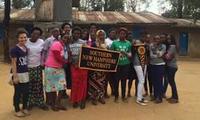 opportunities and classroom-to-career pipelines. The Yale team was tasked to support operations in the Kiziba Refugee Camp where Kepler is pioneering tertiary education models for displaced populations. Through a series of interviews and classroom observations, the Yale team concentrated on improving the gender imbalance of graduates – looking specifically at the challenges young women have completing the program of study.
opportunities and classroom-to-career pipelines. The Yale team was tasked to support operations in the Kiziba Refugee Camp where Kepler is pioneering tertiary education models for displaced populations. Through a series of interviews and classroom observations, the Yale team concentrated on improving the gender imbalance of graduates – looking specifically at the challenges young women have completing the program of study.
Student participants: Gaelle Conille, Angela Ferguson, Lewis Ho
Get-It – Kigali, Rwanda
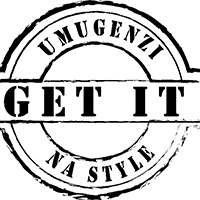 Founded in 2015 by Lauren Russell (YC ’08), Get-It is Rwanda’s first integrated supply chain management system for ordering fresh fruits and other local produce for a growing number of institutions, hospitals, schools and hotels. After relocating full time in Rwanda, Lauren iterated through several different fresh produce delivery business models before recognizing a key missing ingredient was sufficient cold storage capacity to warehouse produce. By filling this void, Lauren was able to rapidly increase both
Founded in 2015 by Lauren Russell (YC ’08), Get-It is Rwanda’s first integrated supply chain management system for ordering fresh fruits and other local produce for a growing number of institutions, hospitals, schools and hotels. After relocating full time in Rwanda, Lauren iterated through several different fresh produce delivery business models before recognizing a key missing ingredient was sufficient cold storage capacity to warehouse produce. By filling this void, Lauren was able to rapidly increase both 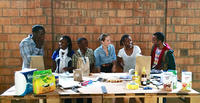 delivery time and choice to large consumers struggling to match local consumption demand with otherwise absent, despite abundant local product availability. The Yale team worked with Lauren on inventory management and demand forecasting – and learned most specifically about her “financial –first” philosophy to accessing local farmer delivery commitments as they sought to become a source of product for this young company.
delivery time and choice to large consumers struggling to match local consumption demand with otherwise absent, despite abundant local product availability. The Yale team worked with Lauren on inventory management and demand forecasting – and learned most specifically about her “financial –first” philosophy to accessing local farmer delivery commitments as they sought to become a source of product for this young company.
Student participants: Mathew Coetzee, Audrey Odonkor, Maddy Zimmerman
Safe Motos – Kigali, Rwanda
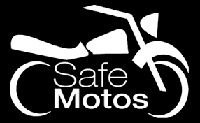 SafeMotos is a ride hailing and on demand services platform designed specifically for urban Africa’s affluent, middle and bottom of the pyramid classes. Recognized as one of Africa’s most innovative startups, SafeMotos consolidates multiple on demand services together in one smartphone application with services linked together by a common physical logistics network of motorcycle and car drivers. Launched in Rwanda in 2015 by Barrett Nash and Peter Kariuki after participating in an international startup accelerator,
SafeMotos is a ride hailing and on demand services platform designed specifically for urban Africa’s affluent, middle and bottom of the pyramid classes. Recognized as one of Africa’s most innovative startups, SafeMotos consolidates multiple on demand services together in one smartphone application with services linked together by a common physical logistics network of motorcycle and car drivers. Launched in Rwanda in 2015 by Barrett Nash and Peter Kariuki after participating in an international startup accelerator, 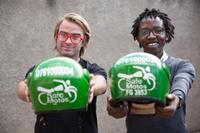 SafeMotos was conceived as an Uber for African motorcycle taxis that uses telematic data to measure real time driver safety. The Yale team worked directly with Nash to develop expansion insights into other urban markets. With four years’ experience and more than 400,000 trips ordered in SafeMotos initial market Kigali, SafeMotos is now launching as a first mover in on demand and ride hailing services in Kinshasa, Africa’s third largest city.
SafeMotos was conceived as an Uber for African motorcycle taxis that uses telematic data to measure real time driver safety. The Yale team worked directly with Nash to develop expansion insights into other urban markets. With four years’ experience and more than 400,000 trips ordered in SafeMotos initial market Kigali, SafeMotos is now launching as a first mover in on demand and ride hailing services in Kinshasa, Africa’s third largest city.
Student participants: Sasrikar Pogaru, Josh Ragbir, Anshul Singhania
Juhudi Kilimo – Northern provinces, Kenya
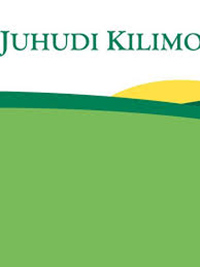 Approximately 80% of the Kenyan population (30 million people) derive their livelihoods from farming. Average landholding in the country continues to shrink; Kenya’s average farm size is less than 2.5 hectares of land. A powerful route to economic growth for smallholder farmers is access to productive agricultural asset yet only about one-third of rural Kenyans have no access to any form of financial services, making these assets unattainable. Juhudi Kilimo provides microfinance loan products that allow Kenyan smallholder farmers to access high-quality agricultural assets that enhance the productivity of their farms. Smallholder farmers use their financing products to acquire assets like irrigation equipment, chicken coops, or improved breeds of dairy cows that can produce more than four times more milk per day than local dairy cows in Kenya. This improved productivity in dairy, for example, has the potential to increase household productivity by $600 annually. Responding to challenges in the loan portfolio, the Yale team did a comprehensive review of loan types and, specifically, loan origination practices, to highlight patterns of high-risk underwriting. As part of the experience, the team traveled with regional managers across northern Kenya to meet directly with consumers.
Approximately 80% of the Kenyan population (30 million people) derive their livelihoods from farming. Average landholding in the country continues to shrink; Kenya’s average farm size is less than 2.5 hectares of land. A powerful route to economic growth for smallholder farmers is access to productive agricultural asset yet only about one-third of rural Kenyans have no access to any form of financial services, making these assets unattainable. Juhudi Kilimo provides microfinance loan products that allow Kenyan smallholder farmers to access high-quality agricultural assets that enhance the productivity of their farms. Smallholder farmers use their financing products to acquire assets like irrigation equipment, chicken coops, or improved breeds of dairy cows that can produce more than four times more milk per day than local dairy cows in Kenya. This improved productivity in dairy, for example, has the potential to increase household productivity by $600 annually. Responding to challenges in the loan portfolio, the Yale team did a comprehensive review of loan types and, specifically, loan origination practices, to highlight patterns of high-risk underwriting. As part of the experience, the team traveled with regional managers across northern Kenya to meet directly with consumers.
Student participants: Jemimah Orevaoghene, Alissa Wang, Claire Young
